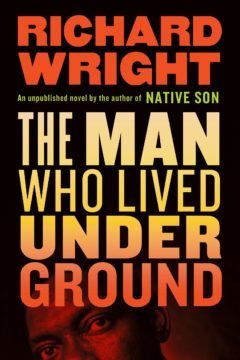Elias Rodriquez at The Nation:
 A surrealist and existentialist tale, The Man Who Lived Underground was rejected by several publishers, but the novel found an afterlife via a series of winding roads. The rejections led Wright to condense the narrative, in particular cutting the lengthy description of police violence in the novel’s opening, and turn it into a short story that was published in 1944. That story was admired by Wright’s friend and mentee, Ralph Ellison. Later, after winning the National Book Award in 1953 for Invisible Man, Ellison stated that his novel had been inspired by Fyodor Dostoevsky’s Notes From Underground. While he and Wright had fallen out by this time, Wright’s influence on the novel was hard to deny. Despite this fact, Invisible Man entered the American literary canon, while Wright’s story languished in obscurity. In the popular imagination, he became known as the author of Native Son, Black Boy, and (for those interested in anti-colonialism) The Color Curtain, but not as the originator of invisible men living underground. That honor remained Ellison’s.
A surrealist and existentialist tale, The Man Who Lived Underground was rejected by several publishers, but the novel found an afterlife via a series of winding roads. The rejections led Wright to condense the narrative, in particular cutting the lengthy description of police violence in the novel’s opening, and turn it into a short story that was published in 1944. That story was admired by Wright’s friend and mentee, Ralph Ellison. Later, after winning the National Book Award in 1953 for Invisible Man, Ellison stated that his novel had been inspired by Fyodor Dostoevsky’s Notes From Underground. While he and Wright had fallen out by this time, Wright’s influence on the novel was hard to deny. Despite this fact, Invisible Man entered the American literary canon, while Wright’s story languished in obscurity. In the popular imagination, he became known as the author of Native Son, Black Boy, and (for those interested in anti-colonialism) The Color Curtain, but not as the originator of invisible men living underground. That honor remained Ellison’s.
more here.
